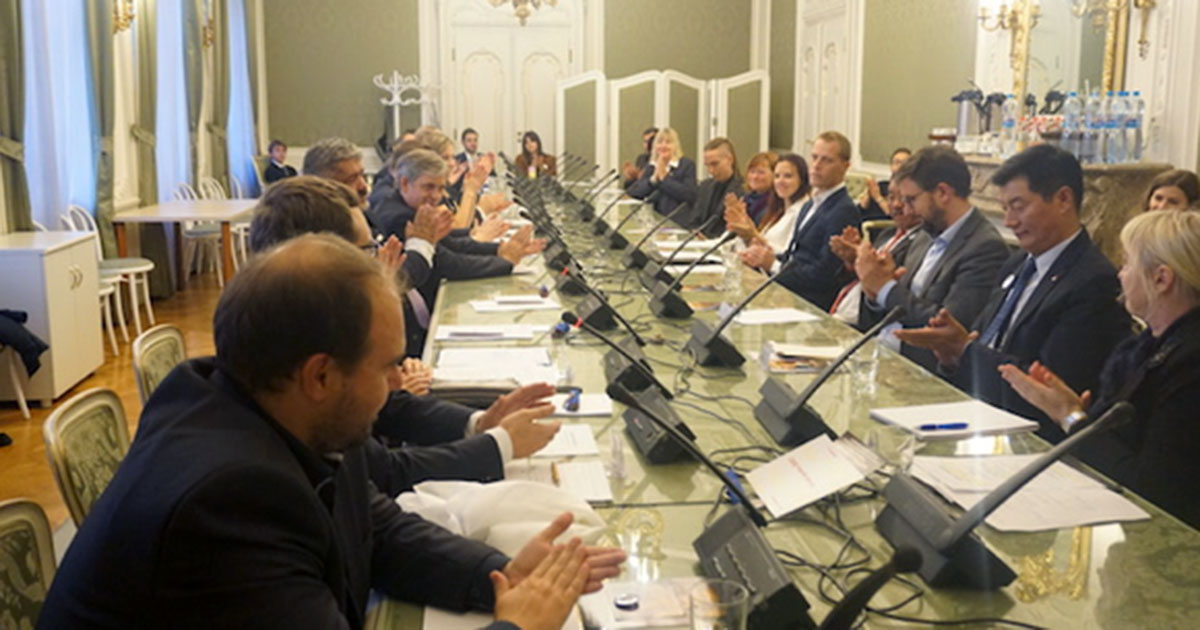
CTA president Dr. Lobsang Sangay at the inauguration of the Parliamentary Group for Tibet at the Senate of the Czech Republic in Valdštejnská on 9 October 2018. (Photo: Sontash)
The International Campaign for Tibet welcomes the recent establishment of two parliamentary groups on Tibet in France and the Czech Republic, an important sign of the continuous support for the Tibetan people in Europe.
The new Czech Parliamentary Group for Tibet, which was created at the initiative of Dana Balcarová (Pirate Party) and Marek Benda (Civic Democratic Party) in September, was officially launched this week, coinciding with the visit to Prague of the Central Tibetan Administration’s President Lobsang Sangay. It brings together over fifty representatives from both Chambers of the Czech Parliament, making it the largest parliamentary group for Tibet in Europe.

The new French National Assembly’s Tibet group President Ms. Elisabeth Toutut-Picard and her husband during an audience with the Dalai Lama in September. (Photo: Olivier Adam)
In France, the Study Group on Tibet of the National Assembly (the French Parliament’s lower house), which was first created in June 1990, was also fully reinstated this month, and is now composed of 17 deputies from various political groups. It will be chaired by Elisabeth Toutut-Picard, a health and environment specialist who belongs to the Party of President Macron La République en Marche. This new group will work hand-in-hand with its counterpart in the French Senate the International Information Tibet Group, headed by Senator Michel Raison and composed of 23 Senators.
“In view of the dire situation that continues to prevail there, it is of utmost importance that Tibet remains on the agenda of international and national politics, and we are therefore heartened by the establishment of these two groups,” said ICT’s EU Policy Director Vincent Metten. “It is all the more welcomed in the Czech Republic, where China’s influencing efforts in recent years have resulted in a U-turn of the traditionally supportive position of the government on Tibet.”
In recent years, the growing investments of Chinese state-backed companies in various sectors of the economy – including for example in Travel Services, the country’s largest airline, or major financial group J&T – has indeed induced Czech leaders to ‘silence’ voices critical of China and its human rights abuses – a 180 degree shift in a country whose post-communist policies strongly promoted human rights. In 2016, the Czech President Milos Zeman for example denied a proposed medal to a Holocaust survivor after his nephew, the Czech Culture Minister Daniel Herman, met with the Dalai Lama.

